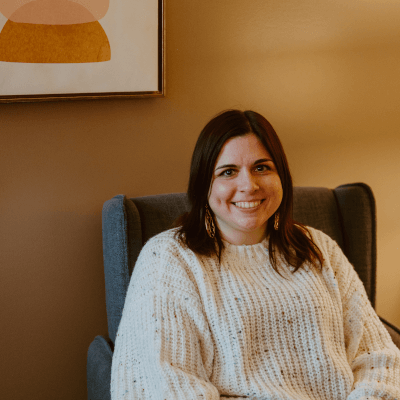
The Misconceptions of Obsessive Compulsive Disorder (OCD)
Imagine this. You are engaging in a conversation at work when an intrusive thought suddenly pops into your mind. “You didn’t turn your hair straightener off before you left the house and now your house is going to burn down. It’s all your fault!” You feel confused and panicked. You checked three times that it was off. You touched the straightener afterwards to make sure it was not still hot. You even asked your roommate to check for you. Even after having this objective “proof” that it is off, you continue to question yourself and feel a swarm of doubt and discomfort. What gives?!
Could it be OCD?
Obsessive Compulsive Disorder (OCD) is often misunderstood and misdiagnosed. On average, it can take 14-17 years to receive a diagnosis of OCD due to the overlap between OCD and other mental health conditions. This is partly due to individuals with OCD feeling shameful about their symptoms and reluctant to disclose their struggles, but it can also be due to symptoms being missed.
What Is OCD then? To meet diagnostic criteria, an individual will experience the presence of obsessions, compulsions, or both.
Obsessions are unwanted thoughts, images, or urges that can be disturbing and persistent. They are accompanied by uncomfortable feelings which cause an individual to attempt to ignore or suppress the thoughts, images, or urges. Compulsions are repetitive behaviors or mental behaviors that a person uses to try to make their distress go away. For example, you could have obsessive thoughts or images about your straightener burning the house down and the compulsion would be triple-checking, asking other people to check for you, or mentally reviewing your routine to “make sure” you turned it off. Compulsions can sometimes provide short-term relief, but they’re also what keep you stuck and reinforces the underlying fear!
What if this sounds like me?
Maybe some of this information about OCD resonates with you. Given the fact that stigma is a barrier to treatment, it is important to remember your intrusive thoughts do not define you or make you “bad.” Your thoughts are not threats (even though it could feel that way!) and recovery is possible. If you are curious about OCD or could use additional support, our team is here. Contact us to schedule an appointment today.

About Shelby Mette
Shelby Mette, LPC, specializes in treating anxiety, ADHD, low self-esteem and depression in teens and young adults. She also works with adults living with chronic pain and somatic symptom disorders. She has worked in mental health for more than a decade, including as a psychometrist at Helen Devos Children’s Hospital, and advocates for undeserved and vulnerable populations.
Meet Me



